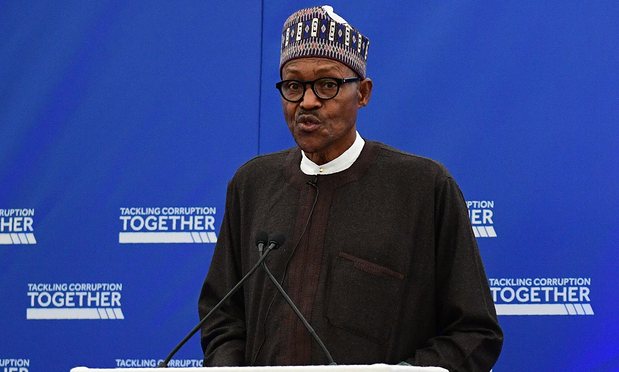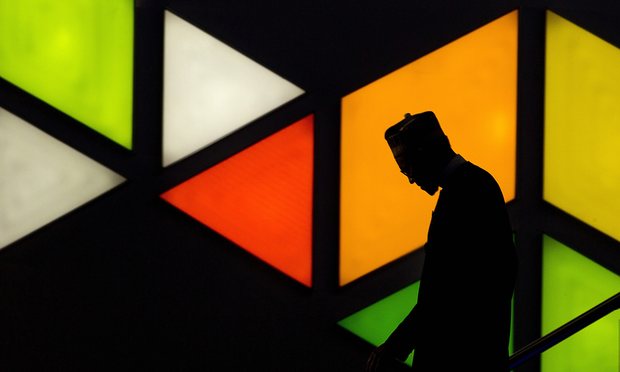President Muhammadu Buhari’s first foreign trip was a symbolic one. He crossed the border to Niger, where his counterpart, Mahamadou Issoufou, gave Buhari a horse. It seemed an appropriate present for a leader who, since taking the reins of government, has been riding roughshod over some entrenched self-interests in the Nigerian state.
Since then, Buhari has kept an eagle eye on security contracts through the presidential committee, indicting more than 300 companies and recovering $35m (£24m) stashed away by the elite. He has started reviewing deals for any signs of money laundering, with bank chiefs already quizzed over opaque agreements fronted on behalf of politicians. Nigeria’s ex-national security adviser, former defence chief, opposition party leaders and some bank chiefs have been investigated by the economic and financial crimes commission. They deny any wrongdoing.
Buhari has also been tackling corruption at the Budget Office. Civil servants had been accused of padding the 2016 budget – a system open to abuse where the budget proposal is at wide variance with prevailing market rates. Buhari sacked the head of the Budget Office and relocated directors to re-examine the budget, which was signed a shameful five months into the year.
Some are concerned that the president is not fighting corruption as avidly as is warranted to bring change; that the old guard, rather than being destroyed, is being driven underground, and likely to resurface. By focusing on those at the top, Buhari is neglecting the other conduits, offices and laws through which corruption is perpetrated and perpetuated.
Many agencies mandated to fight corruption are underfunded and non-transparent themselves. The Code of Conduct Bureau, which receives asset declaration forms from politicians, keeps these locked away, with citizens unable to access them – even using the Freedom of Information law. Publishing assets is critical to understanding the net worth of politicians, but Buhari has shown no interest in publishing his own assets beyond a press release – below the required level of disclosure. Despite his campaign promise for ministers and National Assembly members to reveal their worth, Buhari has not been able to convince them.

The auditor general office is moribund, with none of its audit reports in the public domain since 1999, when Nigeria returned to democracy. In other words, the more Nigeria progresses into democratic governance, the more secretive its auditors become.
Fortunately, the extractive industries transparency initiative (NEITI) fills the reporting gap for this sector with its independent audits. NEITI unearths loopholes, like the $966m (£670m) lost to crude oil swaps recently, but no legislative teeth have been added by the government to hold corrupt people accountable.
Then there’s the National Assembly, which spends $600m every year without any detailed record being made available to the public. This is despite repeated promises by the senate president, Bukola Saraki, who is on trial for corruption and denies the charges, that these trends will change.
Enshrining transparency across the board is the only way to send Nigeria’s elite the clear message that withholding information is just as corrupt as stealing money. This should begin with making government contracts and any beneficial owners public along the entire chain. This approach to instil transparency has latent power to improve citizen access to data and strengthen the work of investigative journalists.
Using technology such as Tracka and Budeshi, as civil society is pushing for, will be critical to track projects from contracting to service delivery. Buhari, speaking at an event in London on Wednesday ahead of the international anti-corruption summit, promised that Nigeria will join the open government partnership– being part of an inclusive network should help Nigeria as it pushes for reform.
It is difficult to fight corruption in Nigeria. Buhari needs to democratise data access and make institutions work independently. This could be achieved via system-wide transparency initiatives, direct communication with citizens, and revising laws that undermine the independence of institutions fighting corruption. It is not enough to target corrupt individuals; systemic corruption itself must be tackled.

